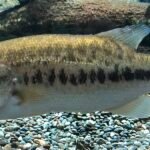USA (PRNewswire).- Intrexon Corporation, a leader in the engineering and industrialization of biology to improve the quality of life and health of the planet, and AquaBounty Technologies, Inc. , a biotechnology company focused on enhancing productivity in the aquaculture market and a majority-owned subsidiary of Intrexon, announced that their jointly developed gene edited line of tilapia, FLT 01, is exempt from GM regulation according to Argentina’s National Advisory Commission on Agricultural Biotechnology (CONABIA). This line of tilapia enables more sustainable production through improvements in fillet yield, growth and feed conversion efficiency, enabling the tilapia to grow to market weight in less time, while also consuming less feed than conventional varieties.
The engineered tilapia were developed using gene editing techniques and do not contain any foreign DNA or a new combination of genetic material that would warrant their regulation as genetically modified in Argentina. FLT 01 is believed to be one of the first gene edited food animals to receive a regulatory exemption due to its designation as a non-GMO. As the companies look to move this product toward commercialization, standard food and environmental safety considerations will still apply to this product prior to introduction.
“We are focused on developing animal biotechnology for aquaculture and livestock through our subsidiaries to support sustainable food production in the U.S. and abroad,” said LTG (Ret.) Thomas Bostick, PhD, PE, Chief Operating Officer of Intrexon. “We are pleased with Argentina’s leadership in establishing a transparent and predictable process for the advancement of products developed with gene editing techniques and see this as a critical development for companies seeking to bring highly innovative solutions to the global market using powerful and highly precise genetic tools. Moreover, enhancing regulatory certainty for products derived from biotechnology is critical to the future of agricultural innovation.”
Tilapia is the fourth most consumed seafood after shrimp, salmon and canned tuna and is forecasted to be one of the highest growth production segments in aquaculture. The jointly developed tilapia demonstrates a significant improvement in fillet yield of 70%, a growth rate improvement of 16% as well as a feed conversion rate improvement of 14%, offering promise to producers to shorten the time to harvest. A shortened production cycle can reduce input costs, increase production outputs and reduce risk of disease. Defining sustainable solutions such as this tilapia will be critical to providing nutritious products to a growing population.
“AquaBounty is committed to advancing novel technologies into the marketplace to improve sustainability in aquaculture and through our productive collaboration with Intrexon have been able to make significant progress toward this goal,” said Ronald Stotish, PhD, Chief Executive Officer of AquaBounty. “We look forward to continuing our work with the Intrexon team and realizing the potential of biological engineering approaches to enhancing aquaculture productivity.”
Editor at the digital magazine AquaHoy. He holds a degree in Aquaculture Biology from the National University of Santa (UNS) and a Master’s degree in Science and Innovation Management from the Polytechnic University of Valencia, with postgraduate diplomas in Business Innovation and Innovation Management. He possesses extensive experience in the aquaculture and fisheries sector, having led the Fisheries Innovation Unit of the National Program for Innovation in Fisheries and Aquaculture (PNIPA). He has served as a senior consultant in technology watch, an innovation project formulator and advisor, and a lecturer at UNS. He is a member of the Peruvian College of Biologists and was recognized by the World Aquaculture Society (WAS) in 2016 for his contribution to aquaculture.







